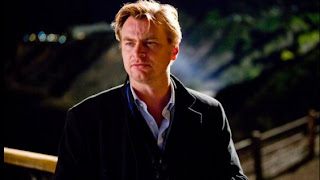Christopher Nolan's Next Project to Mess with Time Travel
Interstellar is Christopher Nolan’s next project following
his tremendous success with the Dark Knight franchise. It got my curiosity when
the initial word was that it was a science fiction movie. This enthusiasm
disappeared though, once word came out of a time travel story line.
I’m not an ardent fan of time travel movies. They usually
twist the plot of a film like a bully wringing the arm of his latest school
prey, as if it were a piece of clothing that needs drying. It’s sometimes
painful to watch the laws of physics being openly broken with no regard. On most
occasions, things don’t add up. Yes, certain franchises have dealt with time
travel fruitfully, namely the Back to the Future and Terminator series. The former’s
comic elements didn’t draw excessive attention to its treatment of time travel,
yet the film understood that going to the past can irrevocably alter many
things through the slightest of actions. The Terminator, though becoming a
champion of the genre, failed to acknowledge this simple fact. Most of the
events involve widespread carnage, courtesy of Arnold Schwarzenegger. You might
think that if a miniscule outcome can create a ripple effect, the events in the
Terminator should bring about a revolution of change, but the movie only
isolated a few happenings. By the time the franchise released later
installments, people and machines go back and forth in time and no one knows
what the hell the definitive outcome is supposed to be as a result of altering
events. Time travel is convoluted. It’s fucked up.
A time travel story that is rooted in my mind is that of “Sound
of Thunder”, written by Ray Bradbury. It involves a group of people going back
in time to hunt a T-Rex. They understand that even minor alterations can
snowball into catastrophic changes, so they go hunting on a levitating path. They
only kill animals that are about to face an imminent death. The T-Rex they plan
to kill is to die after a tree collapses on it. So they shoot the dinosaur,
remove the bullets to remove any trace of evidence, and let the tree fall on it
later. In that way, future archeologists won’t doubt the reasons of the
creature’s death, leaving the future relatively unperturbed. However, one
hunter accidentally tramples a butterfly, and by the time they go back to the
present, things have changed dramatically. Killing that butterfly may have
wiped out an entire line of species, thus altering the path of nature over
millions of years. It made sense. It was
pragmatic.
I was weary of Interstellar, assuming that it, too, would
take its liberties with the laws of time travel, but this preconception was
vanished through some research. The movie is based on physicist Kip Thorne's
theories of gravity fields, wormholes and several hypotheses that Albert
Einstein was never able to prove. It dabbles in reality and actual science.
Initially, Steven Spielberg was attached to the project and hired Jonathan
Nolan to write the script. The basic essence of the movie should be about a group
of explorers who travel through a worm hole and into another dimension. What’s
extremely interesting is that scientists from the California Institute of
Technology were involved in the screenwriting process. The film is set to take
a realistic approach; one that provides feasible solutions to the plot unlike some
of the more recent entries into this category.
Of course, Spielberg dropped out and was eventually replaced
by Christopher Nolan. He started off by recruiting his cast regulars Anne
Hathaway and Michael Caine, with new members Mathew McConaughey and possibly
Jessica Chastain. I’m anticipating this film now. Christopher Nolan is directing
and there’s an impressive group of actors. Even the science folk get to see
their actual work and theories on screen rather than some mind-numbing madness.
Everyone’s happy.

No comments:
Post a Comment